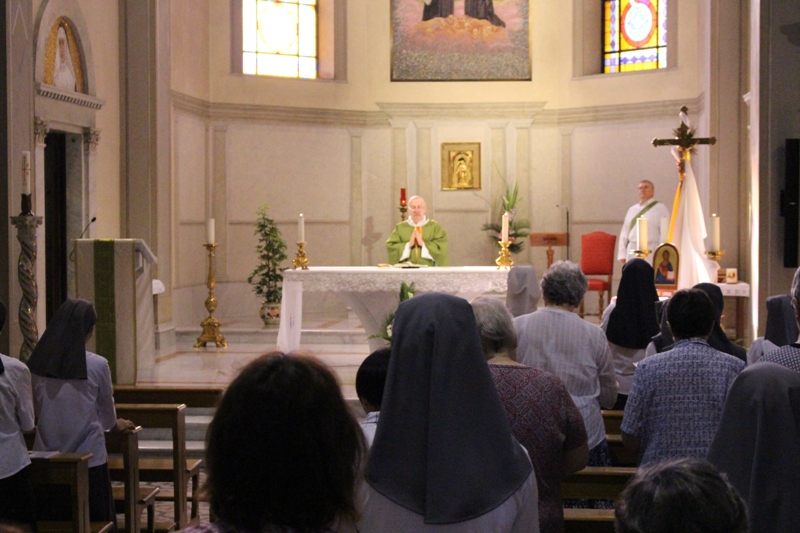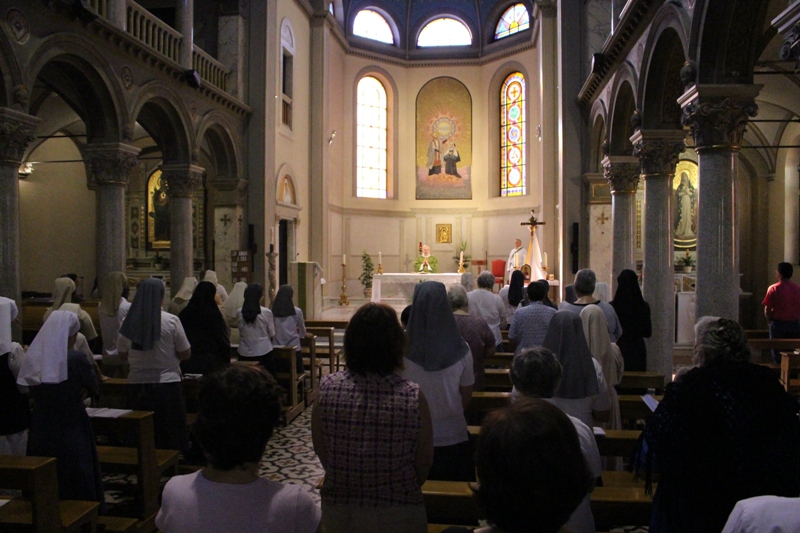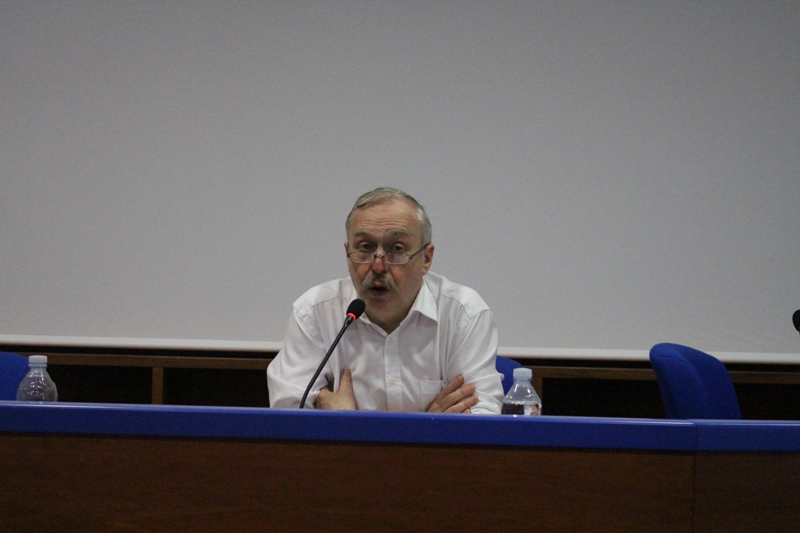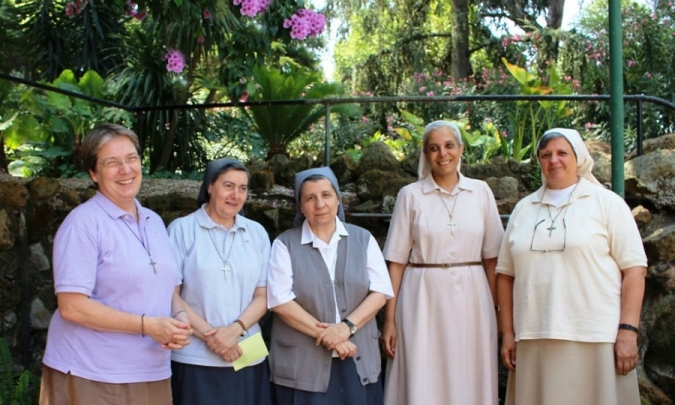Towards Emmaus
Cleophas and his companion : the Congregation !
The challenges of Religious life
Fr. J. Claude Lavigne
At 8.30 the Eucharistic celebration was presided by Fr. J. Claude Lavigne who introduced, with the homily, the theme of the day and invited the chapter members to depart as the disciples of the Gospel Mk 6: 7-13 and to reach the places from where arises the “clamours” of the world. So one has to leave everything, make room to welcome others and their needs. And it is enough to carry: a stick to go always further and the brother to be incurred.
The fraternal life is our only strength; the community is the place where we learn to trust one another and where it is possible to verify our adhesion to the Gospel.
At 9.30 the sisters and the laity, FJA, gathered in the chapter hall to listen the report of Fr. Lavigne which was divided in two sessions: before and after the break. The argument, interesting and new in contents regards about the challenges of the religious life. The challenges are numerous, but Fr. Lavigne evoked attention on a particular one: the intercultural challenge, that is, unity in diversity which generates other three:
1) The governance has the first objective to assure the unity of the body- the constant reconstruction of the unity in front of the risks of divergences and fragmentation. In the Bible there are different models of unity:
* The diversification of the Unity (God is one, the human being is dual: man and woman)
* The decentralization (the image of the Body of Pauline Theology: one head different parts);
* The Pentecost (The Holy Spirit makes unity in the diversity);
* The Trinity – Perichoresis (one permeates in the other without loosing the identity; deep and dynamic unity);
* The universality as a process of promotion, of exceeding ever made (unity is to walk with others leaving one’s own cultural imperialism).
2) The transmission of the identity which reflects a solid theological and biblical formation which is on-going, and from the institutional identity, clearly identifiable.
3) Europe asks some precise questions to the religious life. Europe is not any more at the centre, is not the unique way to interpret the Charism.
After the break, Fr. Lavigne introduced an another challenge: the challenge of the art of living which is a new way of living in the world which demands to think in a new way our dealing with time and space and to consider the social relationships and the solidarity.
In the afternoon, after the personal reflection, the groups identified some important points regarding personal life, for the Chapter and some questions to ask to Fr. Lavigne.
At 17,00 the assembly gathered in the hall for the sharing of the works. With Vespers the day was concluded.









